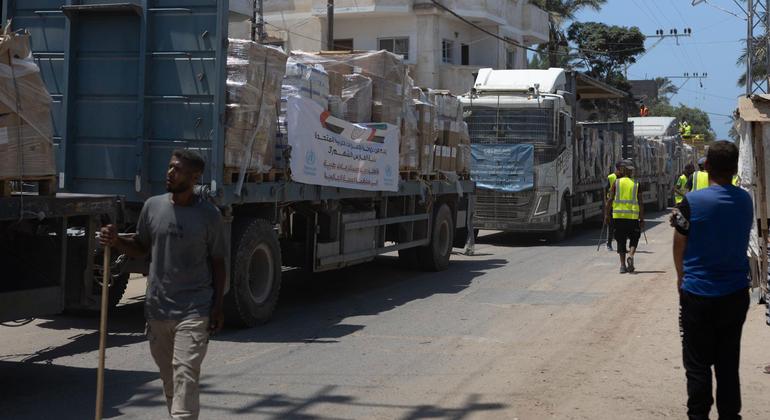The risks for women and girls in this vast region are serious and systemic, because political instability, environmental collapse and a decreased international presence are wreaking havoc.
From the kidnapping and marriage of children to the exclusion of schools and public life, their lives and their opportunities are regularly deleted, Sima Bahous, executive director of United Nationstold ambassadors in the Security advice THURSDAY.
“” In the Sahel, where the most serious concerns in the world converge, women and girls carry the weight,She said.
She added that crises due to the increase in terrorism, poverty, hunger, a ruined aid system and narrowing civic space are “Converge – violently and disproportionately – on their bodies and their future.“”
Life is erased
In countries like Burkina Faso, Mali, Niger and Chad, life for women under extremist control “is an erasure of public space,” said Ms. Bahous.
Their movement, their visibility and even the clothes are strongly restricted. The schools have been burned or closed, leaving more than a million girls without access to education.
“” The abduction is not a by-product of terrorism in the Sahel-it is a tactic,Ms. Bahous said, noting that in Burkina Faso, the number of women and girls abducted more than doubled in the past 18 months.
In Mali, 90% of women are affected by female genital mutilation. Children’s marriage rates in some parts of the region are among the highest in the world. Maternal mortality – driven by pregnancy and poverty – is among the worst in the world.
Decrease resilience and attention
“The distances that women and girls travel for water or firewood increase longer, while their safety shrinks,” said Ms. Bahous.
Two -thirds of the women interviewed feel dangerous during these trips. Climate change only approves the difficulties, extreme heat and drought increasing both mortality and food insecurity in the region.
However, despite the assembly needs, international support is discouraged.
Only eight percent of this year’s humanitarian call for the region were met in May.
Development aid has dropped almost 20% in the past two years. Consequently, women’s protection and empowerment programs have been suspended, while the ministries focused on gender equality are funded, merged or closed.
Political space fence
At the same time, democratic and civic space is narrowed.
In Niger, only 14% of participants in recent institutional reforms were women. In Mali, only two out of 36 members writing the new national charter were women.
Leonardo Santos Simão, head of the UN Office for West Africa and the Sahel (Unowas), also warned that a deteriorated security environment – marked by waves of jihadist attacks and political turbulence – undermines progress and feeds travel.
He added that the reduction in space for the media, civil society and women’s organizations threatens hard gains and that a wider crisis is undergoing governance and peacebuilding efforts.
“The economy of the region remains very vulnerable to external shocks. Although macroeconomic indicators show an improvement, the increase in debt levels continues to limit the capacity of governments to provide essential services, “he said.
Fragile gains
However, progress is possible – and in some cases, visible.
In Chad, women now hold 34% of parliamentary seats. In border areas subject to conflicts in Mali and Niger, women’s participation in local peacebuilding has increased from five percent to 25%, helping to resolve more than 100 disputes related to rare natural resources.
Throughout the region, the joint United Nations programming increased the return of teenage girls to the school by 23%, while doubling the participation of women in local governance in 34 communities affected by conflicts. In addition, an initiative by the United Nations Bank has reached more than three million adolescent girls with health care, safe spaces and living skills training.
Stay with the women of Sahel
However, these gains remain fragile.
“” We cannot abandon the Sahel – whatever the policy, whatever the financing landscapes, whatever the geopolitical, geopolitical winds,Ms. Bahous said in conclusion.
“” Let us support with the women of the Sahel – not by charity, but in recognition of their power to shape a better future.“”
Originally published at Almouwatin.com








